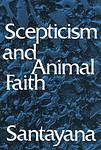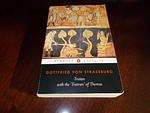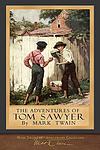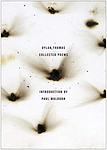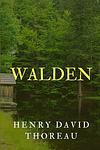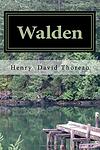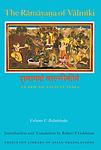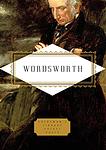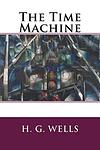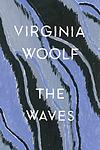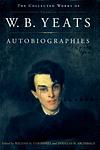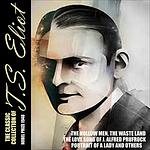Masterpieces of World Literature
This is one of the 300 lists we use to generate our main The Greatest Books list.
-
Miss Julie by August Strindberg
"Miss Julie" is a classic play that delves into the themes of class, love, and power. The story revolves around the daughter of a Count who, in a moment of passion, becomes involved with her father's valet. This scandalous affair leads to a tumultuous power struggle between the two characters, ultimately resulting in tragedy. The narrative explores the dynamics of gender and class in the late 19th century, revealing the societal constraints that lead to the characters' downfall.
The 2754th Greatest Book of All Time -
Nausea by Jean Paul Sartre
The novel follows a historian living in a small French town, struggling with a strange and unsettling feeling of disgust and revulsion he calls 'nausea'. He grapples with the existential dread of his own existence and the meaningless of life, continually questioning his own perceptions and the nature of reality. As he navigates through his everyday life, he is plagued by his philosophical thoughts and the overwhelming sensation of nausea, leading him to a profound existential crisis.
The 254th Greatest Book of All Time -
The Poems of Sappho by Sappho
This book is a collection of lyric poetry by an ancient Greek female poet, known for her passionate verses on love and relationships. The poems, often composed in the first person, offer a unique insight into the life and emotions of women in antiquity, touching on themes such as desire, jealousy, and personal introspection. Despite many of her works being lost over time, the surviving fragments continue to be celebrated for their vivid imagery and emotional depth.
The 1336th Greatest Book of All Time -
The Poems of Percy Bysshe Shelley by Percy Bysshe Shelley
This collection of poetry showcases the lyrical and evocative works of a prominent Romantic poet, known for his passionate and often radical themes. The poems cover a wide range of subjects, from love and beauty to politics and nature, embodying the poet's revolutionary spirit and his deep belief in the power of human imagination. His eloquent verses, characterized by vivid imagery and profound emotional intensity, continue to inspire and captivate readers around the world.
The 1351st Greatest Book of All Time -
The Red and the Black by Stendhal
The novel is a detailed psychological portrait of Julien Sorel, a young man from a provincial background who aspires to rise above his humble beginnings. He uses his intelligence and hypocrisy to advance in the post-Napoleonic French society, which is deeply divided by class and political loyalties. The story is a critique of the society's materialism and hypocrisy as Julien's ambitions lead him to a tragic end. The title refers to the contrasting uniforms of the army and the church, the two routes available to him for upward mobility.
The 52nd Greatest Book of All Time -
Scepticism and Animal Faith by George Santayana
"Scepticism and Animal Faith" is a philosophical work that presents the idea that knowledge is not found through evidence or reason, but through animal faith, a term referring to instinctive beliefs. The book delves into the nature of perception and consciousness, and argues that all human knowledge is grounded in unproven preconceptions. The author suggests that to understand the world, humans must first acknowledge their own preconceived notions and biases, and then attempt to understand the world through a lens of skepticism.
The 5725th Greatest Book of All Time -
The Strange Case of Dr. Jekyll and Mr. Hyde by Robert Louis Stevenson
This classic novel explores the duality of human nature through the story of a respected London doctor who creates a potion that transforms him into a sinister, violent alter ego. As the doctor increasingly loses control over when the transformations occur, his alter ego's evil deeds escalate, causing havoc in the community. The narrative is a chilling exploration of humanity's capacity for evil and the struggle for individuals to reconcile their public personas with their private desires.
The 232nd Greatest Book of All Time -
The Tale of Genji by Murasaki Shikibu
"The Tale of Genji" is a classic work of Japanese literature from the 11th century, often considered the world's first novel. The story revolves around the life of Genji, the son of an emperor, exploring his political rise, romantic relationships, and the complex court life of the Heian era. The novel is celebrated for its detailed characterization and its analysis of the different forms of love.
The 155th Greatest Book of All Time -
Thyestes by Seneca
"Thyestes" is a classic tragedy that centers around the mythological figures of the House of Atreus. The story unfolds as Atreus, the King of Mycenae, seeks revenge on his brother Thyestes for committing adultery with his wife. In a gruesome act of vengeance, Atreus kills Thyestes' sons and serves them to him at a feast. The narrative explores themes of power, betrayal, revenge, and the horrific consequences of unchecked ambition.
The 5725th Greatest Book of All Time -
Treasure Island by Robert Louis Stevenson
This classic adventure novel tells the story of young Jim Hawkins, who stumbles upon a treasure map and embarks on a perilous journey to find the buried treasure. Along the way, he encounters a host of memorable characters, including the cunning and treacherous Long John Silver. The narrative is filled with action, intrigue, and suspense, as Hawkins and his companions face pirates, mutiny, and other dangers in their quest for the hidden treasure.
The 102nd Greatest Book of All Time -
Tristan by Gottfried von Strassburg
"Tristan" is a medieval romance that tells the tragic tale of the noble knight Tristan and the beautiful princess Isolde. The story is filled with themes of love, betrayal, and honor, as Tristan is sent to Ireland to bring back Isolde for his uncle, King Mark, to marry. However, on their journey back, they accidentally consume a love potion, causing them to fall deeply in love with each other. Their illicit affair eventually leads to their downfall, resulting in a tale filled with sorrow and heartbreak.
The 941st Greatest Book of All Time -
Tristram Shandy by Laurence Sterne
The novel is a humorous, rambling narrative that chronicles the life of Tristram Shandy. The story is filled with digressions, anecdotes, and eccentric characters, as Tristram often interrupts his own tale to interject commentary or to recount stories from his family's past. Despite the seemingly haphazard structure, the novel is a clever exploration of narrative form and a satirical critique of traditional biographies and novels.
The 59th Greatest Book of All Time -
The Wealth of Nations by Adam Smith
This influential economic book presents a groundbreaking theory that argues for free market economies. The author posits that individuals acting in their own self-interest within a system of natural liberty will result in societal benefit, a concept often referred to as the "invisible hand" theory. The book also critiques mercantilism and explores concepts such as the division of labor, productivity, and free markets. It is widely considered one of the foundational texts in the field of economics.
The 422nd Greatest Book of All Time -
Adventures of Huckleberry Finn by Mark Twain
The novel follows the journey of a young boy named Huckleberry Finn and a runaway slave named Jim as they travel down the Mississippi River on a raft. Set in the American South before the Civil War, the story explores themes of friendship, freedom, and the hypocrisy of society. Through various adventures and encounters with a host of colorful characters, Huck grapples with his personal values, often clashing with the societal norms of the time.
The 24th Greatest Book of All Time -
The Adventures of Tom Sawyer by Mark Twain
The book chronicles the mischievous adventures of a young boy living on the Mississippi River in the mid-19th century. The protagonist, a clever and imaginative boy, often finds himself in trouble for his pranks and daydreams. His escapades range from his romance with a young girl, his search for buried treasure, his attendance at his own funeral, and his witnessing of a murder. The narrative captures the essence of childhood and the societal rules of the time.
The 228th Greatest Book of All Time -
Anna Karenina by Leo Tolstoy
Set in 19th-century Russia, this novel revolves around the life of Anna Karenina, a high-society woman who, dissatisfied with her loveless marriage, embarks on a passionate affair with a charming officer named Count Vronsky. This scandalous affair leads to her social downfall, while parallel to this, the novel also explores the rural life and struggles of Levin, a landowner who seeks the meaning of life and true happiness. The book explores themes such as love, marriage, fidelity, societal norms, and the human quest for happiness.
The 14th Greatest Book of All Time -
Barchester Towers by Anthony Trollope
"Barchester Towers" is a satirical novel that explores the power struggles within the church and aristocracy of a fictional English cathedral town. The story centers around an ecclesiastical power struggle following the death of the Bishop of Barchester, with the bishop's son, Archdeacon Grantly, and a newly appointed bishop, Dr. Proudie, vying for control. The novel also follows the romantic endeavors of Eleanor Bold, a young widow who becomes the object of affection for multiple suitors. The narrative is filled with political maneuvering, social intrigue, and commentary on Victorian society.
The 525th Greatest Book of All Time -
Collected Poems of Dylan Thomas by Dylan Thomas
This collection presents a comprehensive compilation of works by a renowned 20th-century poet, known for his powerful, rhythmic and visionary verse. The book includes all of his poems, from his early, surrealistic pieces to his later, more personal and introspective works, reflecting the poet's profound fascination with life, death, and the human condition. The compilation also features his most famous pieces, renowned for their musicality and for the unique, captivating voice that has made him one of the most celebrated poets of his time.
The 1185th Greatest Book of All Time -
Democracy in America by Alexis de Tocqueville
This influential book offers an in-depth analysis of the strengths and weaknesses of 19th century American democracy. The author, a French political thinker, provides a detailed examination of the democratic process and its impact on society, politics, and the economy. The work highlights the importance of civil society, local institutions, and the spirit of equality in ensuring the stability of democracy. It also delves into the dangers of majority tyranny, the potential for democratic despotism, and the critical role of religion and morality in sustaining a democratic nation.
The 239th Greatest Book of All Time -
Essays of Henry David Thoreau by Henry David Thoreau
This collection of essays presents the profound reflections of a renowned philosopher and naturalist on a variety of subjects, including nature, self-reliance, civil disobedience, and transcendentalism. The author's eloquent prose and deep insights into human existence and the natural world continue to inspire readers, offering a timeless perspective on living a meaningful, deliberate life. His views on individualism and nonconformist thought have had a significant impact on both personal and political spheres.
The 1859th Greatest Book of All Time -
Fathers and Sons by Ivan Turgenev
This classic novel explores the generational divide and ideological clash in 19th century Russia. The story focuses on the relationship between a liberal father and his nihilistic son, who challenges the traditional values and beliefs of his elders. As they navigate their personal differences, the novel delves into broader themes of progress, love, and societal change, offering a poignant commentary on the tension between old and new ideas in a rapidly changing world.
The 132nd Greatest Book of All Time -
The History of the Peloponnesian War by Thucydides
This book is a historical account of the Peloponnesian War between the city-states of Athens and Sparta in ancient Greece. The author, an Athenian general, provides a detailed narrative of the war, its causes, and its consequences, offering valuable insights into the political and social dynamics of the time. The work is considered a pioneering piece in the field of history due to its rigorous methodology and critical analysis of events.
The 676th Greatest Book of All Time -
Poems of Alfred Lord Tennyson by Alfred Lord Tennyson
This book is a collection of poems by a renowned 19th-century British poet who is well-known for his descriptive and narrative style. The compilation includes some of his most famous works that delve into themes of nature, beauty, love, death, and time. The poet's mastery in crafting rich imagery and evocative language is evident throughout the collection, making it a treasured piece of Victorian literature.
The 744th Greatest Book of All Time -
Life on the Mississippi by Mark Twain
This book is a semi-autobiographical account of the author's experiences as a steamboat pilot on the Mississippi River before the American Civil War. It provides a detailed and humorous depiction of life and society along the river, including the author's own journey from an eager young apprentice to a seasoned riverboat pilot. The book also includes a travelogue of a journey down the Mississippi River much later in life, offering a look at the dramatic changes brought about by industrialization and the Civil War.
The 1031st Greatest Book of All Time -
Vanity Fair by William Makepeace Thackeray
This classic novel follows the lives of two contrasting women, the cunning and ruthless Becky Sharp and the sweet and naive Amelia Sedley, against the backdrop of English society during the Napoleonic Wars. The book is a satirical exploration of the obsession with wealth, status, and social climbing, and the moral bankruptcy that can result from such pursuits. The narrative weaves an intricate tale of love, betrayal, and redemption, exposing the vanity and hypocrisy of high society.
The 72nd Greatest Book of All Time -
Walden by Henry David Thoreau
This work is a reflection upon simple living in natural surroundings, inspired by the author's two-year experience of living in a cabin near a woodland pond. Filled with philosophical insights, observations on nature, and declarations of independence from societal expectations, the book is a critique of the complexities of modern civilization and a call to appreciate the beauty and simplicity of the natural world. It explores themes such as self-reliance, solitude, and the individual's relationship with nature.
The 71st Greatest Book of All Time -
War and Peace by Leo Tolstoy
Set in the backdrop of the Napoleonic era, the novel presents a panorama of Russian society and its descent into the chaos of war. It follows the interconnected lives of five aristocratic families, their struggles, romances, and personal journeys through the tumultuous period of history. The narrative explores themes of love, war, and the meaning of life, as it weaves together historical events with the personal stories of its characters.
The 16th Greatest Book of All Time -
The Aeneid by Virgil
This epic poem tells the story of Aeneas, a Trojan who travels to Italy, where he becomes the ancestor of the Romans. It includes a series of prophecies about Rome's future and the deeds of heroic individuals, and is divided into two sections, the first illustrating the hero's journey and the second detailing the wars and battles that ensue as Aeneas attempts to establish a new home in Italy. The narrative is deeply imbued with themes of duty, fate, and divine intervention.
The 75th Greatest Book of All Time -
Candide by Voltaire
"Candide" is a satirical novel that follows the adventures of a young man, Candide, who is living a sheltered life in an Edenic paradise and being indoctrinated with Leibnizian optimism by his mentor. When he is expelled from the paradise for kissing a baron's daughter, he embarks on a journey around the world, witnessing the horrors of war, natural disasters, and human cruelty. Throughout his journey, Candide maintains his optimistic philosophy, despite the constant hardships he faces, ultimately concluding that one must cultivate their own garden, a metaphor for taking control of one's own destiny.
The 64th Greatest Book of All Time -
Ramayana by Valmiki
The book is an ancient Indian epic poem which follows the journey of Prince Rama as he embarks on a quest to rescue his beloved wife Sita from the clutches of Ravana, the demon king. The narrative explores themes of morality, dharma (duty/righteousness), and the struggle between good and evil. The story is not just about Rama's battle against Ravana, but also his spiritual journey and the importance of upholding one's duties and responsibilities.
The 610th Greatest Book of All Time -
Twenty Thousand Leagues Under the Sea by Jules Verne
This classic science fiction novel follows the adventures of Professor Aronnax, his servant Conseil, and harpooner Ned Land as they are captured by the enigmatic Captain Nemo aboard the Nautilus, a technologically advanced submarine. As they journey 20,000 leagues under the sea, they encounter a variety of sea creatures and underwater phenomena. The narrative explores themes of exploration, scientific discovery, and man's relationship with nature.
The 273rd Greatest Book of All Time -
Ethan Frome by Edith Wharton
Set in a bleak New England landscape, the book tells the story of Ethan Frome, a poor, hardworking farmer who is married to a sickly, bitter woman named Zeena. When Zeena's young cousin Mattie comes to live with them, Ethan becomes infatuated with her, leading to a tragic love triangle. The narrative explores themes of passion, duty, and the oppressive nature of rural poverty.
The 366th Greatest Book of All Time -
The Importance of Being Earnest by Oscar Wilde
This comedic play revolves around two protagonists who both use the pseudonym "Ernest" to escape their social obligations. Their plans unravel when they fall in love and their betrothed women reveal they are only willing to marry men named Ernest. The situation is further complicated by a case of mistaken identity, a lost handbag, and a surprising revelation about one of the protagonist's parentage. The play uses wit and humor to satirize the social conventions of Victorian England, particularly the importance placed on trivialities.
The 594th Greatest Book of All Time -
Leaves of Grass by Walt Whitman
"Leaves of Grass" is a collection of poetry that celebrates the human form and condition, while also exploring themes of democracy, nature, love, and friendship. The book, known for its departure from traditional poetic form, features a free verse style and the use of everyday language. The poet presents himself as both an individual and a universal figure, representing the collective American experience and identity. The collection is also notable for its controversial content at the time of its publication, including candid depictions of sexuality.
The 89th Greatest Book of All Time -
Mrs. Dalloway by Virginia Woolf
The novel chronicles a day in the life of Clarissa Dalloway, a high-society woman in post-World War I England, as she prepares for a party she is hosting that evening. Throughout the day, she encounters various characters from her past, including a former suitor and a shell-shocked war veteran. The narrative jumps back and forth in time and in and out of different characters' minds, exploring themes of mental illness, existentialism, and the nature of time.
The 37th Greatest Book of All Time -
The Prelude by William Wordsworth
"The Prelude" is an autobiographical, epic poem that explores the author's spiritual growth and development. The narrative takes the reader through the poet's childhood and youth, his experiences in the French Revolution, and his subsequent disillusionment. It also delves into his relationship with nature, which he sees as a powerful, spiritual force that has shaped his life and consciousness. The poem is a reflection on the poet's personal journey towards understanding his own mind and the world around him.
The 769th Greatest Book of All Time -
The Time Machine by H. G. Wells
A Victorian-era scientist invents a machine that allows him to travel through time. He first journeys to the year 802,701 A.D., where he encounters the Eloi, a society of small, elegant, childlike adults who live in harmony but lack curiosity and drive. He later discovers the Morlocks, a nocturnal, subterranean species who prey on the Eloi. After rescuing an Eloi named Weena, the protagonist loses his time machine and must devise a plan to recover it and return to his own time, all while exploring the social and evolutionary implications of the two distinct societies.
The 182nd Greatest Book of All Time -
To the Lighthouse by Virginia Woolf
This novel is a pioneering work of modernist literature that explores the Ramsay family's experiences at their summer home on the Isle of Skye in Scotland. The narrative is divided into three sections, focusing on a day in the family's life, a description of the house during their absence, and their return after ten years. The book is known for its stream of consciousness narrative technique and its exploration of topics such as the passage of time, the nature of art, and the female experience.
The 35th Greatest Book of All Time -
The Waves by Virginia Woolf
"The Waves" is a novel that follows the lives of six friends from childhood to old age, using an innovative narrative style that intertwines their individual voices into a collective stream of consciousness. The novel explores themes of individual identity, the passage of time, and the human condition, presenting a unique and poetic meditation on the nature of life and death.
The 379th Greatest Book of All Time -
Autobiographies by William Butler Yeats
This book is a collection of autobiographical essays by a renowned Irish poet and playwright, reflecting on his personal and professional life. It provides a deep insight into his early life, family, influences, and the evolution of his poetic and dramatic works. The author also gives a vivid account of the Irish literary scene and the cultural and political climate of his time, including his involvement in the Irish National Theatre and the Irish Literary Society.
The 1375th Greatest Book of All Time -
Collected Poems of W. B. Yeats by William Butler Yeats
This book is a comprehensive collection of poems by a renowned Irish poet. The collection spans his entire career, showcasing his evolution as a poet, from romantic and aesthetic works to more complex, mature pieces reflecting his interest in spirituality and Irish mythology. The book includes his most famous works, as well as lesser-known pieces, providing a thorough overview of his contribution to 20th century literature.
The 214th Greatest Book of All Time -
Germinal by Émile Zola
The novel is a bleak and realistic portrayal of coal miners' lives in 19th century France. The protagonist, a young man who starts work in a mine, becomes embroiled in the hardship and exploitation faced by the workers, leading to his involvement in a strike. The story explores themes of poverty, social injustice, and the struggle for workers' rights, while also providing a detailed depiction of mining life, from the dangerous work conditions to the close-knit communities.
The 349th Greatest Book of All Time -
Don Juan: A Poem by Lord Byron
This epic satirical poem tells the story of Don Juan, a handsome, charming young man from Spain who gets into various adventures and romantic escapades throughout Europe and the Ottoman Empire. Throughout his journey, he encounters a variety of characters, including pirates, sultans, and aristocrats, while also engaging in numerous love affairs. The narrative, filled with humor, irony, and social commentary, serves as a critique of societal norms and conventions, particularly those related to love and morality.
The 916th Greatest Book of All Time -
The Waste Land by T. S. Eliot
"The Waste Land" is a long poem that presents a bleak and despairing view of the world following the devastation of World War I. The poem is divided into five parts and uses a wide range of literary and cultural references, as well as multiple narrators, to depict a world in ruins. It explores themes of disillusionment, despair, and the decline of civilization, and is often considered a seminal work of modernist literature.
The 198th Greatest Book of All Time
Frank N. Magill, 244 Books
Scholar Frank N. Magill’s famous literary studies reference book. A selection of over 200 of the greatest works of literature of all time
Added over 9 years ago.
This list has a weight of 46%. To learn more about what this means please visit the Rankings page.
Here is a list of what is decreasing the importance of this list:
- Voters: 1 person voted
If you think this is incorrect please e-mail us at [email protected].





